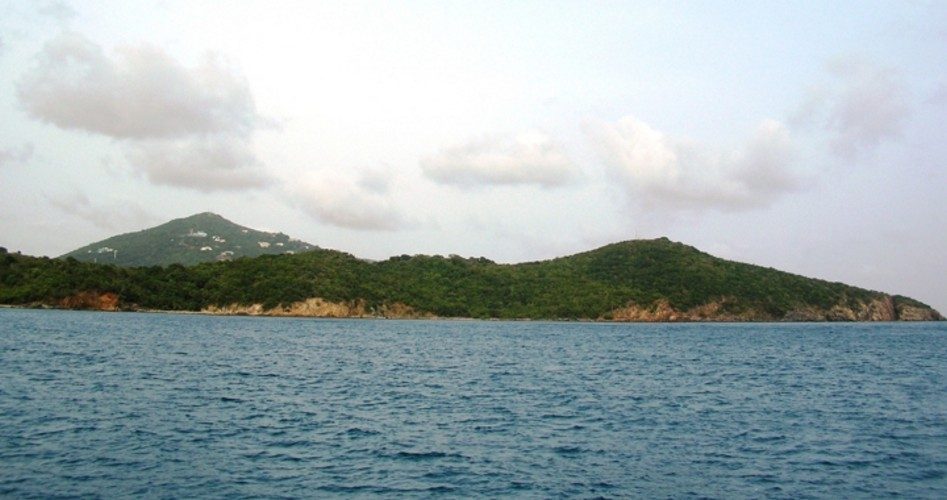
Jeffrey Epstein’s rapes and other sex crimes might be worse than anyone thought.
A new lawsuit from the Virgin Islands says the deceased Wall Street financier and convicted sex offender was molesting girls as young as 11 years old in 2018. That’s more than a decade after the crimes occurred for which he was indicted in July.
The islands’ attorney general wants to seize Epstein’s assets and estate there because it was headquarters for Epstein’s sex-trafficking operation, the lawsuit alleges.
The megawealthy sex fiend, who deployed staff members and associates to procure victims, died in a supposed suicide on August 10 at the Metropolitan Correctional Center in New York City. He was under federal indictment for sex trafficking girls as young as 14.
The Lawsuit
Attorney General Denise George wants to seize Epstein’s estate, the lawsuit says.
“New evidence shows Jeffrey Epstein sexually abused and trafficked hundreds of young women and girls on his private Caribbean island, some as recently as 2018, significantly expanding the scope of his alleged conduct, a top law enforcement official said in a lawsuit filed on Wednesday,” the New York Times reported.
Epstein, the lawsuit alleges, molested girls 11 and 12 years old at his massive compound on Little St. James, and “kept a computerized database to track the availability and movements of women and girls.”
George wants to seize Little St. James and another island, Great Saint James (shown), the Times reported, and seeks “the dissolution of numerous shell companies” there that were a front for his illegal operation.
The new accusations — which draw both from independent investigations by Ms. George’s office and court documents from cases across the country — argue that Mr. Epstein ran a decades-long sex trafficking scheme that had a primary nexus in the Virgin Islands.
“Epstein clearly used the Virgin Islands and his residence at Little Saint James as a way to be able to conceal and to be able to expand his activity here,” Ms. George said.
The suit underscores the legal complications of reckoning with such wide-reaching crimes…. Ms. George’s suit is the first filed against the estate by a government entity, but it joins a field of similar claims filed by more than a dozen women.
No Stopping Him
Frighteningly, Epstein used the islands, far away from prying eyes, with virtually no interference from authorities, the lawsuit says.
He “operated with impunity for years at Little Saint James and Great Saint James, which he obtained through a straw purchaser in 2016,” the Times reported of the lawsuit’s allegations.
As recently as July 2018, Mr. Epstein refused to permit an investigator from the Virgin Island’s Department of Justice to enter Little Saint James, claiming the island’s dock was his “front door,” according to the lawsuit. The investigator was doing routine monitoring of Mr. Epstein because he was a registered sex offender.
Epstein used South American girls hoping to become models, the lawsuit says, and a “ring of associates to rotate the women and girls in and out of sexual servitude, using fraudulent modeling visas to transport them across state lines and international borders, the lawsuit said. He tracked their availability and proximity using the database, court documents said.”
As for the age of the girls, air traffic controllers saw 11-year-olds get on the pervert’s private plane.
Even worse:
In one undated incident detailed in the lawsuit, a 15-year-old girl attempted to swim off Mr. Epstein’s island and escape after she was forced to engage in sex acts with Mr. Epstein and others. The girl was found, and held captive on the island after he confiscated her passport, the suit said.
The lawsuit is also trying to stop Epstein’s executors from turning his $500 million estate into a fund to pay victims because, George claims, they would have to sign confidentiality agreements that would enable executors to hide Epstein’s crimes.
Executors deny that claim, Reuters reported, and “rejected George’s contention that the fund subjects claimants to ‘confidentiality requirements,’ and said the fund is not intended to shield anyone from liability.”
Photo: TravelingOtter / Wikimedia Commons
R. Cort Kirkwood is a long-time contributor to The New American and a former newspaper editor



